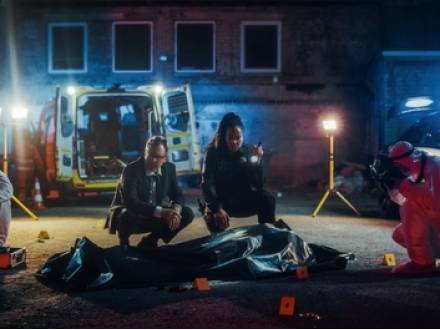Could Self-Defense Significantly Reduce Homicide Charges?
 Recently, after a 24-year-old shot a 61-year-old doorman in Chicago, the circumstances surrounding the shooting resulted in the younger man only being charged with unlawful use of a weapon. By all accounts, the doorman was remembered by all who knew him as someone who helped everyone he knew.
Recently, after a 24-year-old shot a 61-year-old doorman in Chicago, the circumstances surrounding the shooting resulted in the younger man only being charged with unlawful use of a weapon. By all accounts, the doorman was remembered by all who knew him as someone who helped everyone he knew.
Reportedly, when the altercation occurred, the doorman was heading home from work and was on a pedestrian walking bridge near the CTA Blue Line platform at the intersection of South Peoria and Van Buren Street. A verbal disagreement between the two men escalated into an exchange of gunfire, with the older man pulling his gun first and shooting at the younger man, who then fired his own gun in self-defense.
The older man was shot in the head and subsequently died at the hospital. The CTA worker was questioned by police, then released, and charged with unlawful use of a weapon. While those who knew the older man are finding it difficult to believe he would use a weapon in an altercation, video of the incident supports the younger man’s claim of self-defense.
Since the CTA prohibits the possession of a firearm, the shooter could potentially lose his job or face disciplinary actions in addition to the criminal penalties. If you or a loved one is charged with a weapons violation or the much more serious crime of murder, it is important that you speak to a knowledgeable Chicago, IL criminal defense attorney. Once you have an attorney on your side, he or she will immediately begin building your defense.
What Is Homicide in Illinois?
In Illinois, homicide can be charged as first-degree murder, second-degree murder, or manslaughter, depending on the circumstances. First-degree murder occurs when a person is killed without justification, and the individual who killed him or her acted with intent. First-degree murder can also be charged when a murder occurs as a felony is being committed.
Second-degree murder occurs when there was provocation for the murder or the person accused of murder was acting under "sudden and intense passion." Second-degree murder can also be charged when a person kills another person in self-defense, but the amount of force used was not reasonably justified.
Involuntary manslaughter occurs when a person is killed unintentionally as a result of another’s reckless actions. If the manslaughter occurred while the defendant was driving a vehicle, it is charged as reckless homicide. Both offenses are Class 3 felonies.
What Are the Penalties for Homicide?
First-degree murder in Illinois carries a mandatory minimum sentence of 20 years, with a maximum of 60 years, although there can be increases in time if there are aggravating factors. Aggravating factors could include a firearm being used or when the victim is a police officer. There is no time off for good behavior for a first-degree murder conviction; the person convicted must serve his or her entire sentence.
Second-degree murder is a Class 1 felony in Illinois, with a sentence of four to 15 years in prison and up to four years of probation. Manslaughter and reckless homicide carry a potential sentence of two to five years in prison, with probation for up to 30 months, unless there are aggravating factors upgrading the crime to a Class 2 felony rather than a Class 3 felony.
When is Self-Defense a Defense for Homicide?
While self-defense can be a solid defense for homicide charges, it can only be used when:
- There was a grave and immediate threat to the defendant, another person, or the defendant’s property.
- The threat was unlawful in nature.
- The defendant reasonably believed the danger required force.
- The force used did not exceed the threat.
Contact a Cook County, IL Homicide Lawyer
If you are charged with homicide, you need a highly experienced Chicago, IL homicide attorney from Luisi Legal Group. Attorney Luisi is in Chicago criminal courts on a daily basis. Over the past 25 years, he has developed a well-deserved reputation as a skilled litigator. Call 773-276-5541 today to schedule a free consultation.







